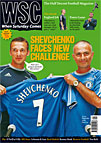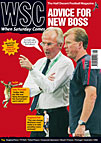 With only one promotion left until the Football League beckons, St Albans City now have the money on board for required ground improvements. Steve Menary reports
With only one promotion left until the Football League beckons, St Albans City now have the money on board for required ground improvements. Steve Menary reports
To most non-League clubs, a marketing officer is an unaffordable luxury. John Gibson tends to agree. When Verry, a £100 million turnover construction firm owned by Gibson, opened a new office in St Albans four years ago, he decided that instead of hiring a marketing man he would buy the local team. “Their manager played for a pub team I ran. He said, ‘The club’s in real trouble, can you help?’ ” says Gibson. “I was going to get a marketing manager but decided to spend the £50,000 to £60,000 a year that would cost on a club.”
